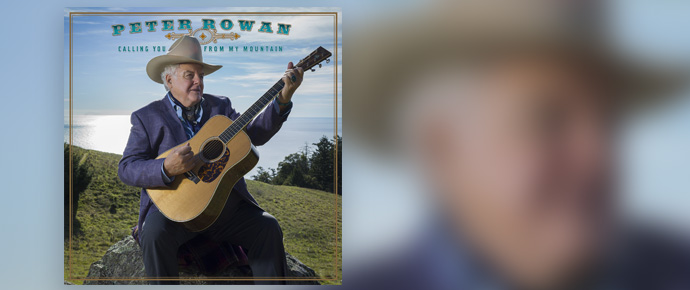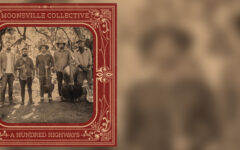
Borne from previous years flush with uncertainty and strife, Peter Rowan’s remarkable new album, Calling You From My Mountain, on Rebel Records, finds the legendary bluegrass standard-bearer and erstwhile musical pioneer touching on topics that deal pointedly with today’s troubling circumstances. Rowan and his band — Chris Henry (mandolin, harmony vocals), Max Wareham (banjo, harmony vocals), Julian Pinelli (fiddle), and Eric Thorin (upright bass) — are joined by an impressive group of contributors, including Shawn Camp, Mark Howard, Lindsay Lou, and Molly Tuttle, but it’s Rowan’s vision that makes this music gel. A combination of storied standards by Woody Guthrie, Bill Monroe, and Lightnin’ Hopkins, and originals by Rowan himself, it all adds up to an record rich in both reverence and reflection, with no real distinction between the old and the new. Rowan is an old school troubadour after all — and the thoughts and sentiment expressed throughout provide a cohesive bond to the album overall.
That’s especially evident on the Rowan original, The Red, The White and the Blue, a song that recalls a nation once united in its common cause, even as it laments the distrust and divide that defines the country’s current climate. There are traces of abject nostalgia elsewhere as well, as found in The Song That Made Hank Williams Dance, which quotes liberally from Williams’ seminal songbook, and Woody’s New York Town, a down-home ramble filled with picking and fiddling that epitomizes Rowan’s intrinsic ties to a classic folk tradition. The A.P. Carter classic, Little Joe, serves the same purpose, finding a nice fit through a pair of assured instrumentals, Tex Logan’s Come Along Jody and Monroe’s Frog on the Lilly Pad, offerings that also pay homage to the basics of bluegrass.
Through it all, the music remains both assured and inspired, with certain offerings — Light at the End of the World, Dream of Heaven, and the closing Freedom Trilogy — reflecting Rowan’s well established reputation as both a superb storyteller and an artist that provides a vital age-old connection. Ultimately, Calling You From My Mountain is, at its essence, a clarion call that’s meant to remind anyone within earshot that tradition should be cherished and that the past remains intrinsically tied to the future.







